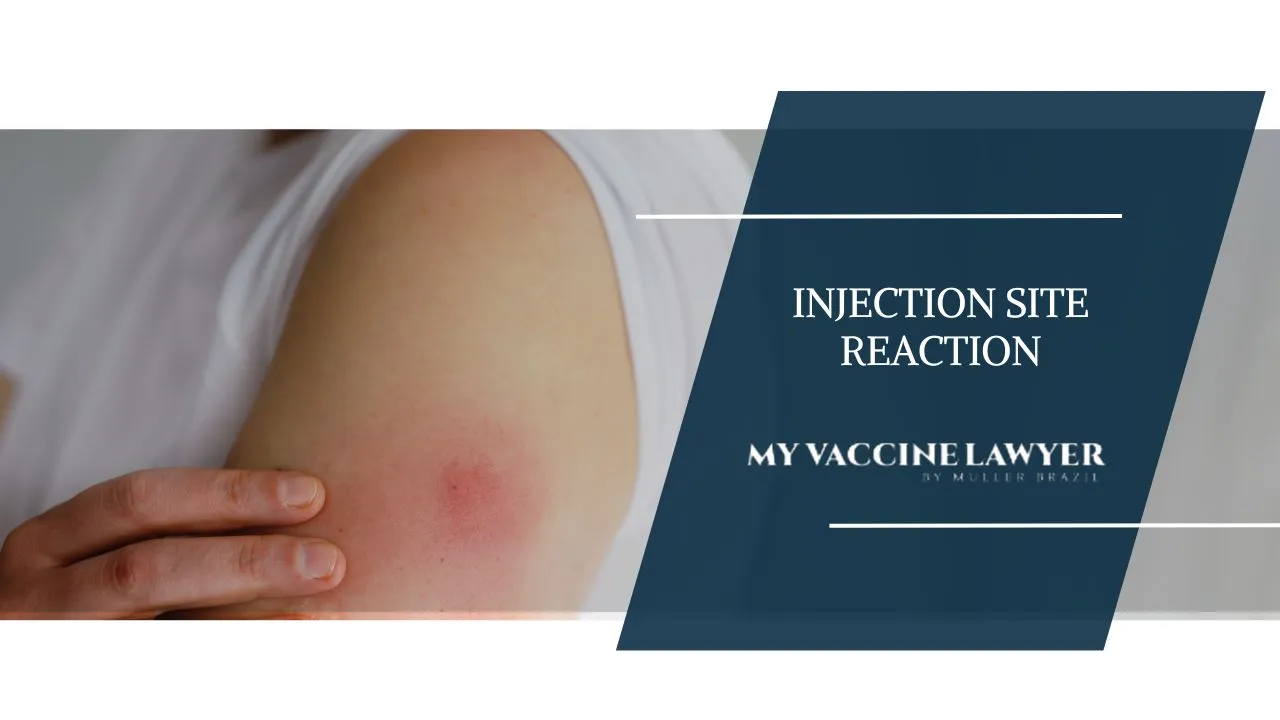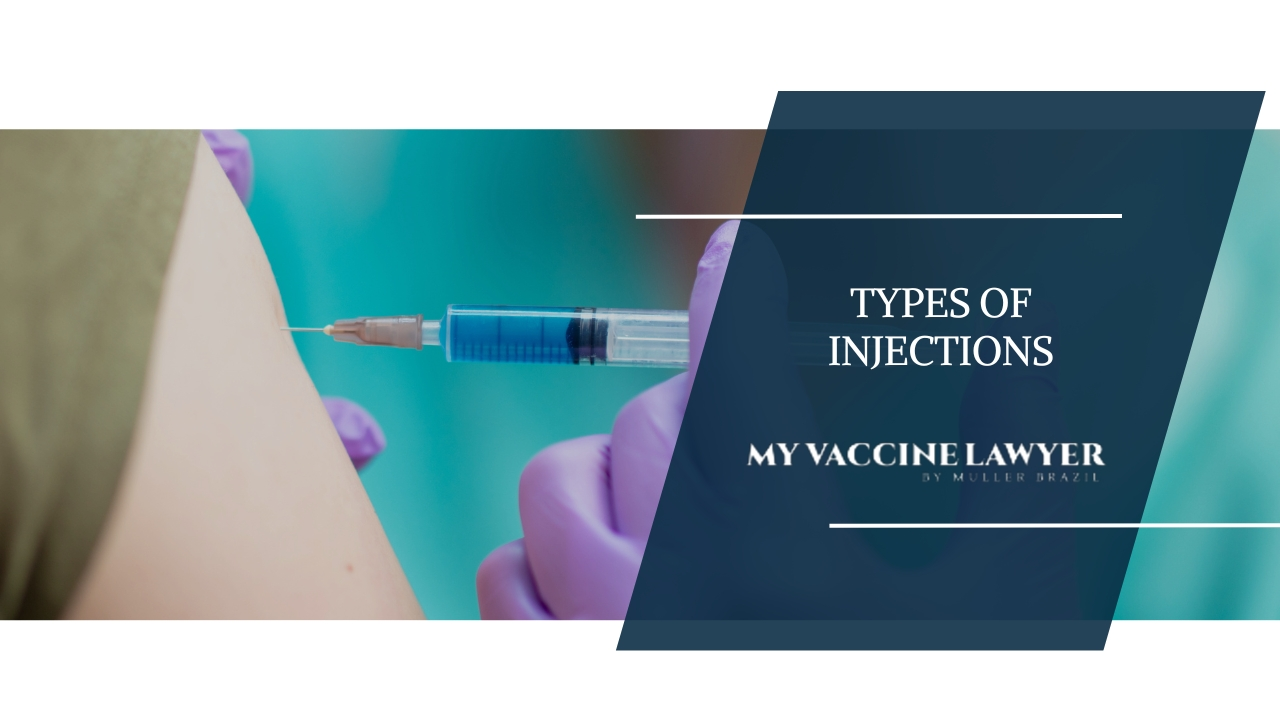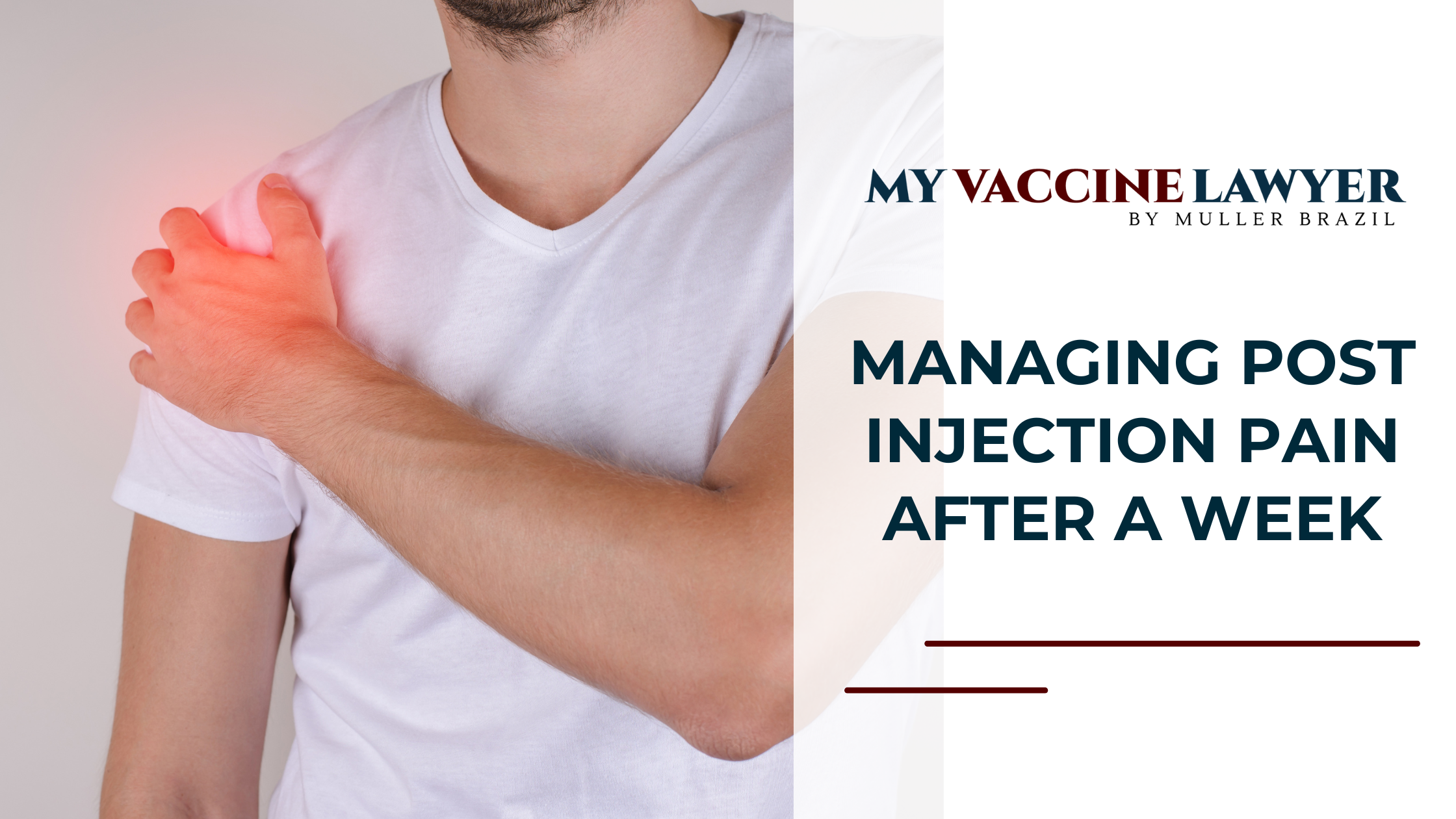Managing Vaccine Injection Site Reactions: Symptoms & Treatment
In this blog post, we will dive into the various types of vaccine injection site reactions, their symptoms, treatment and how to prevent and manage...
4 min read
Vaccine Injury Law Resources / Vaccines / Managing Post Injection Pain After a Week
 Paul Brazil
:
Feb 4, 2025 8:29:00 AM
Paul Brazil
:
Feb 4, 2025 8:29:00 AM
Injections are a common part of medical care, whether for vaccinations, medications, or other post injection inflammation treatments.
While most patients experience only mild discomfort at the injection site, some may feel pain or develop post injection inflammation symptoms that last longer than expected. In some cases, complications such as post-injection inflammation or infection can occur, requiring immediate care.
Understanding the causes of post-injection pain and knowing when to seek help is important for managing your symptoms effectively. If you or your child develops symptoms that worsen after an injection, it’s important to consult a healthcare provider to rule out more serious issues.
If you’ve experienced persistent pain or complications following an intramuscular injection, My Vaccine Lawyer is here to help. Our team specializes in vaccine-related injury cases and can guide you through your legal options.
Post-injection pain is usually the result of the body’s natural response to the needle or the medicine injected. However, other factors can contribute to discomfort, such as:
While most cases of post-injection pain resolve within a few hours to days, persistent or worsening symptoms may signal a more serious issue.
Take Control of Your Injury Today
Post-injection pain and inflammation often occur after an intramuscular injection as the body reacts to the needle or medicine. While most symptoms are mild and resolve within a few days, it’s important to recognize when they may require attention.
Most cases of post-injection pain are mild and can be managed with self-care measures, but more severe symptoms may require medical intervention. Here’s how to address both common and serious cases:
For more severe or persistent symptoms, a healthcare provider may recommend:
Mild discomfort at the injection site is normal after most intramuscular injections, and symptoms like soreness or swelling usually resolve within a few days. However, if the pain persists or worsens beyond a week, it may indicate a more serious issue.
Contact a healthcare provider right away if you experience:
While most injections are administered safely, complications can occur due to improper technique, contaminated equipment, or an adverse reaction to the medicine. These issues can lead to prolonged pain, infection, or serious side effects that require more than just medical attention, they may require legal action.
At My Vaccine Lawyer, we specialize in helping individuals who have experienced complications related to injections, including:
We understand how overwhelming it can be to deal with prolonged pain or complications after an injection. Our attorneys are here to guide you through the Vaccine Injury Compensation Program (VICP) legal process, making sure that you understand your rights and have the support you need to seek compensation.
Post-injection pain is a common occurrence, but it’s important to recognize when symptoms extend beyond what’s normal. If you’ve experienced persistent or severe pain, swelling, or other complications after an injection, it may indicate a more serious issue such as improper administration, infection, or an allergic reaction.
You don’t have to manage these challenges alone. Contact us today for a free consultation to discuss your case. Call us at (800) 229-7704, email us at info@myvaccinelawyer.com. Your health matters, and so do your rights, let us help you make them heard.
Paul Brazil is a native of Dunmore, Pennsylvania and a graduate of Dunmore High School. For his undergraduate education, he attended Bloomsburg University where he majored in political science. He then went on to earn his JD from Widener University School of Law. Following graduation from law school, Mr. Brazil worked at a large Philadelphia civil defense firm where he litigated workers’ compensation claims and Heart and Lung Act cases. In 2012, he joined with his coworker Max Muller to form Muller Brazil.

In this blog post, we will dive into the various types of vaccine injection site reactions, their symptoms, treatment and how to prevent and manage...

Getting a vaccine is a routine part of staying healthy, but that doesn’t mean it’s always comfortable. If you've recently received a pneumonia shot,...

The proper administration of injections is critical in the healthcare field, and it’s beneficial to be aware of all their different types with...
